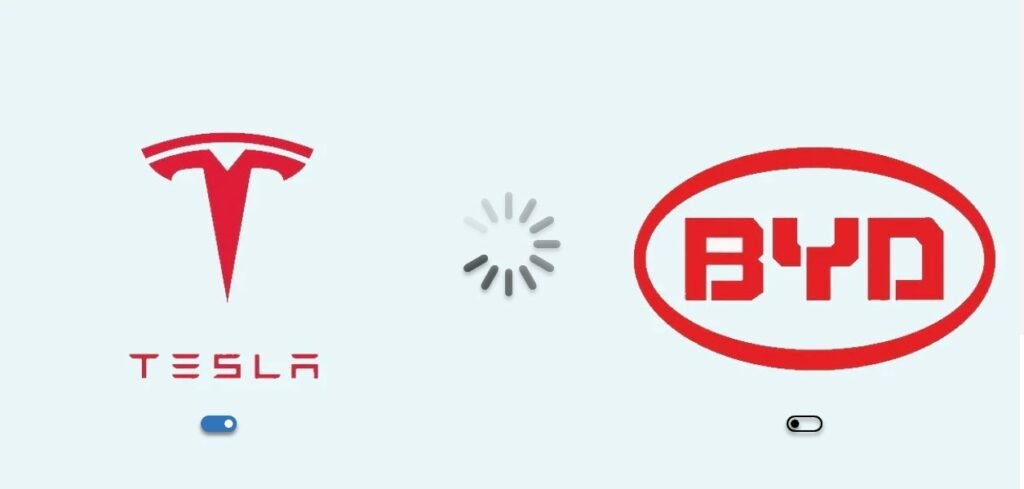It is evident that Electric Vehicles have taken root in today’s consumer market, and it’s understandable, I mean, true some of use like the rev of an engine but with environmental conservation and green living taking over modern lifestyle, our traditional engine is getting its fair share of criticism..
For the EV market, two brands have been notable contenders, Elon Musk’s Tesla and Chinese company BYD (Build Your Dreams) –darn good name if you ask me, with Tesla the leading electrical vehicle brand… until very recently.
Over the last financial quarter however, BYD has seen some increase in market standing, particularly in China, the world’s largest EV market where BYD has not only surpassed Tesla in sales but also taken up a big piece of the market share.
According to the China Passenger Car Association (CPCA), BYD led the Chinese new energy Vehicle (NEV) market in 2024 with a whopping 34.1%, while Tesla only held 6.0%. So today, we try to learn what factors are making the EV market is favoring BYD over Tesla.
Why Consumers are Buying More BYD than Tesla Electric Vehicles.
- Diverse and Affordable Product Range.
Affordability is a great factor for any product. The consumer might sympathize with your cause, but if they can’t afford the product then they simply won’t go for it, they will look for alternatives.
On that note, BYD offers a wide range of vehicles, including battery electric vehicles (BEVs) and plug-in hybrid electric vehicles (PHEVs) for diverse use cases. On top of that, they have models like the Seagull hatchback, priced under $10,000 which makes it an affordable entry-level vehicle for those who wish to switch, albeit at a budget.
Tesla’s lineup on the other hand largely targets the premium segment of consumers, with higher starting prices that may be less attainable for the cost-conscious consumer.
- Luxury and Performance Market Sectors.
Beyond affordability, BYD has made moves into the luxury and performance markets with the introduction of high-end vehicles like the Yangwang U8 SUV and the Yangwang U9 supercar, which, quite frankly are rivaling Tesla’s higher-end models. This alone allows BYD to appeal to a wider range of the consumer market, from the budget conscious buyers to those that are more prone to test the limits of their machines… I for one got intrigued by the drifting EVs.
- Global Expansion and Localization.
BYD’s aggressive global expansion strategy includes establishing manufacturing plants in their key market locations. For example, the company plans on completing a $1 billion manufacturing plant in Indonesia by the end of 2025, aiming to produce 150,000 EV units annually for export. Reuters
This localized production approach enables BYD to reduce costs, avoid tariffs, and better serve regional markets, enhancing its competitiveness against Tesla.
- Focus on Advanced Tech Intergration.
The integration of intelligent features in vehicles is becoming a major differentiator in the EV market, especially in China where the term “Electric Intelligent Vehicles” (EIV) has come up to reflect the combination of electric mobility and advanced technologies. As per an article by Business Insider, China’s EV market has seen an influx of affordable models fitted with high-tech extras.
For example, in march, smartphone maker Xiaomi rolled out its Xiaomi SU7 sedan, which comes with advanced autonomous-driving features, and voice recognition that allows drivers to control their household appliances from their car. EV startup Xpeng also announced an electric car they are referring to as the first “AI-defines Vehicle.”
This trend hasn’t left BYD behind, the focus on technology extras enhances user experience and meets the growing consumer demand for smart vehicle functionalities, not to mention the sheer adventurous spirit consumers express towards them.
- Strong Presence in the Hybrid Vehicles Market.
Unlike Tesla which solely focuses on BEVs, BYD has a huge lineup of PHEVs which are still popular in the market. In 2024 for example, PHEVs contributed to nearly two million of BYD’s sales, showing that the dual focus allows BYD to capitalize on a bigger market share compared to Tesla.
- Huge Local Talent Pool.
China is well known for its large local pool of software engineers and a thriving startup ecosystem which provides companies like BYD with a competitive edge in innovation. This local talent advantage enables BYD to rapidly develop and implement cutting-edge technologies, keeping pace with or even surpassing competitors like Tesla.
- Vertical Integration and Supply Chain Control.
BYD’s vertically integrated supply chain, in that they produce their own components like batteries and chips allows the company to maintain cost leadership and quality control. By reducing dependency on external suppliers and supply chain disruptions, BYD is able to maintain competitive prices, which contrasts Tesla’s approach involving partnerships and external sourcing for certain components.
To sum this up, the increasing consumer interest in BYD over Tesla Electric Vehicles can be attributed to the affordability, product diversity, the supply chain control and effective utilization of the immense local talent. By aligning its offerings with consumer preferences and market demands, BYD has positioned itself as a great contender in the EV industry, challenging Tesla’s dominance in the market.




